
When the play Our Town premiered in 1938, Brooks Atkinson, the influential critic for The New York Times, wrote admiringly that the play’s author, Thornton Wilder, “has transmuted the simple events of human life into universal reverie.” Theater historian Mary C. Henderson described it as “a kind of tone poem of American life.” Perhaps you’ve seen it.
Our Utopia, which gets its premiere this weekend from the Hillsboro theater Bag & Baggage, is – as the title suggests and the company acknowledges – “inspired by the classic play Our Town.” This new work, by Cuban-born Hillsboro resident Carlos-Zenen Trujillo, “gives the audience the opportunity to explore what it means to be a member of a community,” says the Bag & Baggage website.
Directed by Jackie Apodaca, the production is a collaboration with the Ashland New Play Festival. (Bag & Baggage also presented Our Utopia as a live virtual reading in the 2022 Fertile Ground Festival.)
Plays, of course, can seem very different from page to stage; Our Town, reputedly, was imagined by Wilder with highly stylized scenery, and the unusually spare staging that its initial director, Jed Harris, devised is often credited with a fair portion of the show’s enduring potency.
So note that my descriptions of Our Utopia are based merely on a reading of the script as it was in the late stages of rehearsal.
But I think it’s safe to say that Trujillo has bounced off of Wilder’s model at an interesting angle. His play makes some clear nods to its inspiration, especially in being a community’s somewhat ritualized presentation of itself. But Aurora Canyon, the fictional locus of Our Utopia, is a very different place than Grover’s Corners, New Hampshire. And whereas Wilder adds weight to the simple-life sentimentality that begins his play with eventual musings on death and cosmic order, Trujillo seems instead to have social-psychology fish to fry.
Trujillo’s characters have names as idyllic as their outlook on life, evocations of paradisical nature, such as Sequoia, or Eden. Their play, they tell us, is meant “to tell the incredible story of our community,” and it proceeds mostly through testimonies, tales of the personal misfortunes that led them to Aurora Canyon, tinged with worry about larger, vaguer societal collapse around the edges. Now they live, it seems, in a happy collective, with structured days but short work hours, growing their own food, living in alignment with nature and taking thrice-daily meditation breaks. And, of course, love: “We live on it like bees off pollen.”
Their cheerful testimonies are sprinkled with jargon such as “united harmony” and “connect to source,” and it isn’t long before whiffs of cultish recruitment waft across this paradise of platitudes.
Not surprisingly, no matter how back-to-nature it is, this social experiment must contend with the vagaries of human nature. Or vice-versa.
Speaking of nature, the metaphors here aren’t always as pleasant as pollen-gathering bees.
“When a caterpillar becomes a butterfly it does not simply grow wings,” comes one of the pronouncements of the group’s charismatic leader. “Its flesh melts. And within the cocoon it becomes remade. In a new, more perfect version. This is what is required of you. To be reborn. You must sever yourself of attachments to the outside. You must sever yourself of the greedy identities the outside world has thrust on you. And liberate yourself. Through this we preserve the security of our paradise. We can brook no argument.”
As one of them admits, “Building paradise isn’t always easy.”
Song of the week
Testimony: This is my cult.
Opening
When Artists Repertory Theatre staged Annie Baker’s Circle Mirror Transformation a decade ago, one of the production’s strengths was the presence of Richard Elmore, among the greatest of Oregon Shakespeare Festival veterans, in the cast. The play, an Obie winner, about emotions that get pushed to the surface amid a community center “adult creative drama” class, has plently going for it in any case, a deft, subtle blend of humor, heart and heft. So a production of Circle Mirror Transformation by Ashland’s Rogue Theater Company might be exciting enough already. But add longtime OSF favorite Robynn Rodriguez as director, and a cast including such talented compatriots as Gregory Linington, Jeffrey King and Vilma Silva, and it sounds like a flashback to Ashland’s glory days.
***
The creative team behind the musical Sweet Charity reads like an all-star team of mid-century culture: Federico Fellini (story), Neil Simon (book), Cy Coleman (music), Dorothy Fields (lyrics), Bob Fosse (concept, direction, choreography). The 1966 stage hit introduced such memorable songs as “Big Spender” and “If My Friends Could See Me Now” amid a tender-hearted story and lots of incandescent dance. The Shedd Theatricals season in Eugene rolls on with a production directed by Terry Ray, starring Lynnea Barry as the luckless but loving dancer Charity Hope Valentine.
***
Tesla City Stories, which draws good crowds to the Old Church for live radio theater – that is, staged recreations of old-time radio storytelling – purports to use scripts from “the ultra-obscure Tesla Broadcasting Company (1943-1945).” As an article several years ago in Portland Monthly noted, “You may find it hard to track down any other reference to this particular company elsewhere, but the backstory compiled by the producers makes for a thoroughly entertaining read.” So perhaps the history of said company, the elaborate tale of how director Brendan Jones came across a lost trove of scripts, and such multi-episode stories as Nightingale of the Broken Heart and The Off-key Life of Viola Harper all are part of the same sprawling creative conceit.
In any case, whether archivist/revivalists or hardworking fantasists, Jones and crew are back with another installment.
***
In work for a variety of Portland theater companies over the years, Sam Dinkowitz has shown a knack for bold theatricality and edge-of-danger fight choreography, qualities that should serve him well as he takes on directing chores for Macbeth at Astoria’s Ten Fifteen Theater. Brace yourselves for toil and trouble.
***
Hand2Mouth Theatre remounts its immersive “performance installation” Home/Land at a propitious time, with the company’s artistic director post passing to Michael Cavazos, whose story is nicely told in a recent article by ArtsWatcher Bobby Bermea.
***
The Canon Shakespeare Company presents the lively comedy The Two Gentlemen of Verona. The production marks the directing debut of Rowan Dery, a stage manager and company member with Fuse Theatre Ensemble.
Weekender
As part of what it calls its Curated Residency Series, the close-in Eastside studio New Expressive Works hosts Gerrin Mitchell’s Sexicide, which is billed “as a penetrating look at intimacy in the digital age.” Mitchell is a charismatic actor, mover and singer, but it sounds as if he has some dark musings at work here, such as: “An orgasm is described as a mini death, but can it actually kill you?”
One night only
There’s safety in numbers, or so we’ve heard, but there’s risk in improv comedy. Splitting the difference, Bridge City Improv presents NINE – a show so named for the number of performers invited. In the spirit of splitting, the evening is divided into two acts, each featuring a separate troupe, one of which is the Knockouts, which includes the multifaceted theater vet Adrienne Flagg.
Closing
I’ve written a couple of times in the past few weeks about a little show called 52 Pick-Up at 21ten Theatre. So here I’ll quote instead from a review by Willamette Week assistant arts and culture editor (and former ArtsWatcher) Bennett Campbell Ferguson: “With its jumbled chronology and rueful finish, the play echoes (500) Days of Summer, but avoids that film’s smug regard for its own cleverness. Without the crutch of irony or apology, [playwrights] Dawe and Bozi have written a resplendent romance that [Brian] Pater, [Annie] Trevisan and director Gavin Hoffman have brought to smoldering, soulful life.”
The flattened stage
What’s in a name…er…Mr. Scottish Play?
Where are they now
At long last, the Perelman Performing Arts Center in New York City has officially opened. This is the $500-million cultural component of the World Trade Center site’s long-running rehabilitation, but also of interest to Oregon arts lovers because it’s the place that lured the great Bill Rauch away from the Oregon Shakespeare Festival, where he was artistic director from 2008 to 2019.
The Perelman announced its first season’s programming several weeks ago – a broad mix of music, dance, opera, film, theater and onstage celebrity “conversations.” So the most recent spate of coverage has focused more on the building’s striking design and on the area’s re-birth in the decades since the 9/11 terror attacks.

“This trio of high-tech theaters is veiled behind a facade made up of thousands of half-inch-thick, richly veined marble panels that are sandwiched between whisperingly thin sheets of glass,” architecture critic Michael Kimmelman wrote in The New York Times. “The veins create lozenge-shaped patterns that ripple across all four sides of the building. After dark, when the memorial park across the street empties and office workers head home, Perelman lights up like a lantern. Its white stone turns amber. And chandeliers in the towering corridor hugging the center’s curtain wall cast the silhouettes of milling theatergoers onto the glowing marble, summoning the neighborhood back to life.
A piece in the Observer does credit Rauch with helping the center in “setting the stage for unparalleled excellence in its programming. The curtain rises on opening day with ‘Refuge: A Concert Series to Welcome the World’ on September 19, kicking off a five-day pay-what-you-wish spectacle featuring musical talents such as Shoshana Bean, Common and Laurie Anderson.”
Meanwhile, in other OSF alumni news, David Schmitz, who served as executive director during what was arguably the company’s darkest period, from 2020 until the start of this year, has landed as interim managing director of Stages Houston.
The best line I read this week
“(L)ife, unlike art, has an irritating way of bumping and limping on, undoing conversions, casting doubt on solutions, and generally illustrating the impossibility of living happily or virtuously ever after…Time, like the sea, unties all knots. Judgments on people are never final, they emerge from summings up which at once suggest the need of a reconsideration. Human arrangements are nothing but loose ends and hazy reckoning, whatever art may otherwise pretend in order to console us.”
– from the Iris Murdoch novel The Sea, the Sea
***
That’s all I have for now. I’ll try to do better the next time.











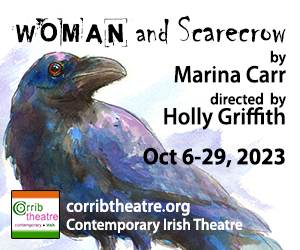

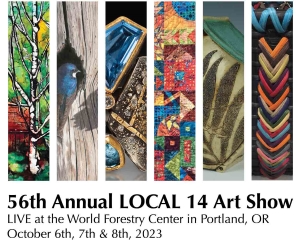
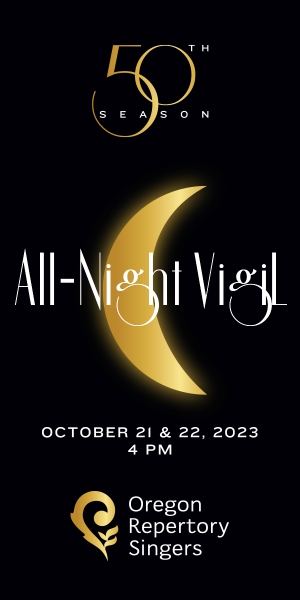


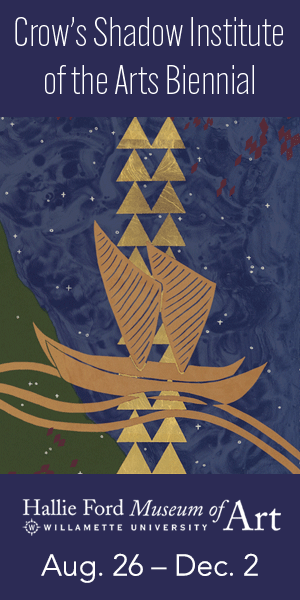
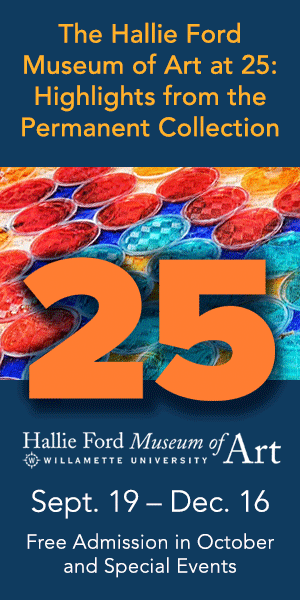
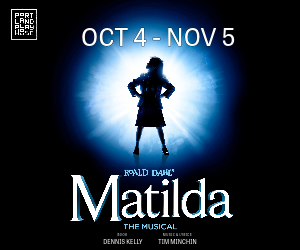

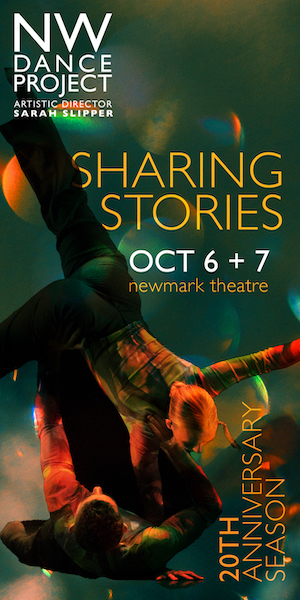





One Response
“You write, “Plays, of course, can seem very different from page to stage; Our Town, reputedly, was imagined by Wilder with highly stylized scenery, and the unusually spare staging that its initial director, Jed Harris, devised is often credited with a fair portion of the show’s enduring potency.” What is you source for this information?